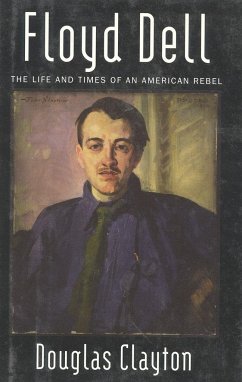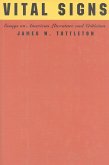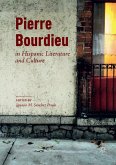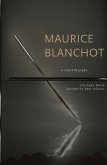The first full-length biography of the celebrated novelist, critic, editor (of The Masses), poet, and playwright who was both central to radical culture in the early 20th century and profoundly skeptical of it. Intelligent, sympathetic...a superb life of the sweetest singer of the lyrical left. William L. O Neill.
In the heyday of the American avant-garde and Greenwich Village bohemianism, in the early years of the twentieth century, Floyd Dell was one of the scene's brightest lights. "The prose laureate of Greenwich Village", some called him, "the most talented of literary young men". In a galaxy of high-spirited artists, writers, and playwrights, no figure was more colorful and brilliant. Douglas Clayton's biography of Floyd Dell traces the life of a boy from the Midwest who rose to influence in the Chicago Literary Renaissance and moved on to New York to become a celebrated novelist, critic, editor, poet, and playwright. Beyond his literary pursuits, Dell was also a notorious bohemian, proponent of free love, and champion of feminism, progressive education, socialism, and Freudianism. When he was editing The Masses, perhaps the best radical magazine ever, Dell once famously remarked that it "stood for fun, truth, beauty, realism, freedom, peace, feminism, revolution". So did Dell's own life. Yet, as Douglas Clayton shows, while Dell was central to radical culture, he was also profoundly skeptical of it. He was a leader among the cultural rebels while also a shrewd satirist of their countless causes and tendencies. He was an early escapee from Marxism, and his career never followed the familiar left-to-right course of some radical writers. All his life Dell struggled with this perspective, and with the larger relationship between politics and art - a struggle that continues to have meaning for us today.
Hinweis: Dieser Artikel kann nur an eine deutsche Lieferadresse ausgeliefert werden.
In the heyday of the American avant-garde and Greenwich Village bohemianism, in the early years of the twentieth century, Floyd Dell was one of the scene's brightest lights. "The prose laureate of Greenwich Village", some called him, "the most talented of literary young men". In a galaxy of high-spirited artists, writers, and playwrights, no figure was more colorful and brilliant. Douglas Clayton's biography of Floyd Dell traces the life of a boy from the Midwest who rose to influence in the Chicago Literary Renaissance and moved on to New York to become a celebrated novelist, critic, editor, poet, and playwright. Beyond his literary pursuits, Dell was also a notorious bohemian, proponent of free love, and champion of feminism, progressive education, socialism, and Freudianism. When he was editing The Masses, perhaps the best radical magazine ever, Dell once famously remarked that it "stood for fun, truth, beauty, realism, freedom, peace, feminism, revolution". So did Dell's own life. Yet, as Douglas Clayton shows, while Dell was central to radical culture, he was also profoundly skeptical of it. He was a leader among the cultural rebels while also a shrewd satirist of their countless causes and tendencies. He was an early escapee from Marxism, and his career never followed the familiar left-to-right course of some radical writers. All his life Dell struggled with this perspective, and with the larger relationship between politics and art - a struggle that continues to have meaning for us today.
Hinweis: Dieser Artikel kann nur an eine deutsche Lieferadresse ausgeliefert werden.








